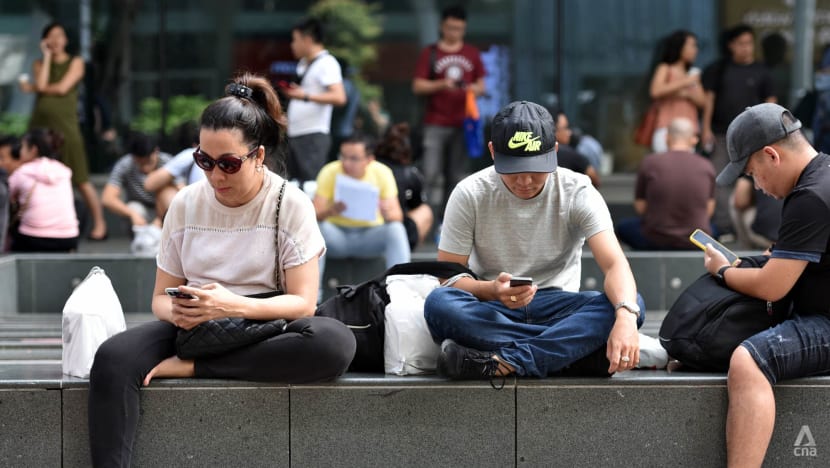Commentary: The fight against misinformation isn’t over when parents reject baby’s lifesaving surgery over COVID-19 vaccination
Arguments that run counter to established views aren’t always fake news, but they need to stand up to scrutiny. We must build up our foundation of critical thinking, says SUSS sociologist Omer Ali Saifudeen.

File photo of a baby sleeping. (Photo: iStock/nataliaspb)
SINGAPORE: We live in an age where everyone seems to claim their own version of “truth” and there is a growing mistrust of experts. The world saw this clearly during the pandemic, particularly around COVID-19 vaccination.
What happens when vaccine misinformation becomes an immediate matter of life and death? On Dec 9, a New Zealand court intervened after the parents of a six-month-old infant refused to allow him to have a life-saving operation unless unvaccinated blood was used.
Temporary custody of Baby W was given to his doctors for urgent surgery to address a congenital heart problem, without which health authorities said he would not have survived.
His parents were reportedly concerned that blood from donors vaccinated against COVID-19 would adversely affect their child, with the couple’s lawyers calling long-term effects of the vaccine “untested”.
The case has become a rallying point for the anti-vaxxer movement. It also underscores the need to continue addressing misinformation.
UNKNOWINGLY SHARING FAKE NEWS
A Dec 2021 study by the Nanyang Technological University's Centre for Information Integrity and the Internet found that nearly half of study participants thought they could identify fake news. But even more of them said they had unknowingly shared fake news.

Since the pandemic, more people are bringing up scientific studies in discussions. But look hard enough and there'll always be something that supports a fringe theory or calls into question some other established fact. It’s part and parcel of scientific research.
But when it comes to issues in our culture wars – on vaccines or even drugs and climate change – should a layperson's views stand up to scientific rigour? How can we tell whether an argument is robust?
Critical thinking is the common answer to distinguish truth from falsehood. However, it isn’t a catch-all solution when many do not even know what this entails. Add to this mix that nearly everyone likes to claim to think critically – even those who fall to misinformation.
There are a set of established principles in critical thinking, such as fact-checking, considering the reliability of the source of information or messenger being introspective of our own biases, and crucially, discerning the agenda of the messenger.
THE AGENDA BEHIND MISINFORMATION
We need to consider where the argument is coming from. What is more evident than facts, at times, is the agenda behind the message and that of the messenger. More often than not, scrutiny reveals a one-sided argument with an ulterior motive.
Ask yourself this: Does it ask us to ostracise a particular person or group, create harm or polarise society in some way? Has the study been peer reviewed or have the views been discredited by the wider scientific community? Are the messengers promoting other business or socio-political agenda-driven views that seem a leap from the study subject?
It all boils down to practising our ability to discern the intention. This is not something we can achieve overnight. It takes time to nurture and perfect.
Nurturing critical thinking in youth for example first requires building a relationship of trust with the youth in question. We are more likely to seriously consider outlandish or vilifying claims that come from a trusted friend of family, when we might have normally dismissed.
OVERCOMING OUR OWN BIASES
We also need to examine ourselves. Have we considered the merits of the alternative argument impartially while becoming cognisant of our own biases and beliefs?
Another trait to nurture that can help with critical thinking is "integrative complexity", or our ability to be willing to consider a polarity of views and integrate them into our decision-making or holistic worldview.
Preconceived negative impressions that trigger hateful emotions hinder the development of integrative complexity. There is dissonance and often pushback when a narrative contradicts or challenges firmly held beliefs.
For example, do we dismiss an argument simply because we automatically assumed it to be government propaganda or if we dislike an otherwise-legitimate source? This is a learnt response based on one's personal experiences and exposure.Ultimately, we still need to “do our homework” and scrutinise the facts. When an outlandish claim is made, we must make the time to consult credible verified sources that investigate the claim.
Seemingly “scientific” claims used to support misinformation are often based on limited study samples, cherry-picked statistics and facts, disregarding the wider context or facts that run counter to their narrative.
For instance, climate change deniers often cite small fluctuations in the annual temperatures to pronounce that global warming is an exaggeration – or even that it has stopped – without understand such variations are perfectly normal due to environmental events like El Nino or La Nina phenomena, volcanic activity or ocean conditions.
Or they point to flat trendlines over the last few years, ignoring that the years 2015 to 2022 are set to be eight warmest on record according to the World Meterological Organization. It becomes undeniably obvious that the planet is warming if we look at critically evaluated long-term climate data.
ARE CONTRARIAN VIEWS NATURALLY SUSPECT?
Does that mean that someone who says something contrary to established views is naturally suspect? No. It just needs to stand up to the test of scrutiny.
A well-researched study would have considered facts to the contrary and be able to acknowledge limitations of the study and possible alternate views. We should be wary when an argument lays claim to absolute truths.
In a complex world, we sometimes seek quick answers and end up gravitating towards explanations that confirm what we already believe, especially when they come easily with the click of a button. Misinformation can resonate when they hold some kernel of truth or cut through the uncertainty, especially if nuanced expert opinion can be difficult to understand.
The good news is that misinformation is something we can address, if we take the time and effort to check and think. Reading credible sources - such as reputable news platforms that present balanced perspectives, expert studies that have been peer-reviewed and reliable fact-checking resources – can build up our foundation of critical thinking to apply to subsequent claims.
With enough practice, we can become more confident in distinguishing information from misinformation.
Dr Omer Ali Saifudeen is Senior Lecturer, Public Safety and Security Programme at the School of Humanities and Social Sciences, Singapore University of Social Sciences (SUSS).


















